alexander hamilton
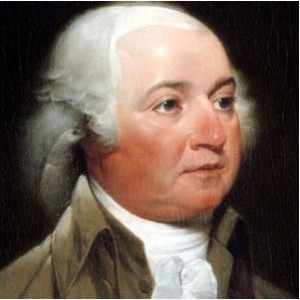
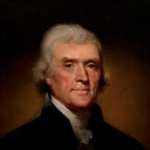 With the election of Thomas Jefferson as third president, on February 17, 1801, came the first peaceful transfer of power from one political party to another in the United States. Nevertheless, the election was an unusual one. By this time, Jefferson had helped to draft the Declaration of Independence, had served in two Continental Congresses, as minister to France, as secretary of state under George Washington and as John Adams’ vice president. These credentials probably made him the best person for the job in the entire world.
With the election of Thomas Jefferson as third president, on February 17, 1801, came the first peaceful transfer of power from one political party to another in the United States. Nevertheless, the election was an unusual one. By this time, Jefferson had helped to draft the Declaration of Independence, had served in two Continental Congresses, as minister to France, as secretary of state under George Washington and as John Adams’ vice president. These credentials probably made him the best person for the job in the entire world.
While it was obvious that Jefferson was the best man for the job, vicious partisan warfare was the name of the game during the campaign of 1800 between Democratic-Republicans Jefferson and Aaron Burr and Federalists John Adams, Charles C Pinckney and John Jay. The ongoing battle raged between Democratic-Republican supporters of the French, who were involved in their own bloody revolution, and the pro-British Federalists who wanted to implement English-style policies in American government. The Federalists hated the French revolutionaries because of their overzealous use of the guillotine and, as a result, were less forgiving in their foreign policy toward the French. They pushed for a strong centralized government, a standing military, and financial support of emerging industries.
Jefferson’s Democratic-Republicans, on the other hand, preferred limited government, complete and absolute states’ rights and a primarily agricultural economy. They feared that Federalists would abandon revolutionary ideals and revert to the English monarchical tradition. When Jefferson was secretary of state under Washington, he opposed Secretary of the Treasury Hamilton’s proposal to increase military expenditures and resigned when Washington supported the leading Federalist’s plan for a national bank.
A bloodless, but ugly campaign ensued, in which candidates and influential supporters on both sides used the press, often anonymously, as a forum to fire slanderous volleys at each other. It sounds a lot like some of our election campaigns of today. Then came the laborious and confusing process of voting, that began in April 1800. Individual states scheduled elections at different times, which I think further confuses the situation, and although Jefferson and Burr ran on the same ticket, as president and vice president respectively, the Constitution still demanded votes for each individual to be counted separately. As a result, by the end of January 1801, Jefferson and Burr emerged tied at 73 electoral votes apiece. Adams came in third at 65 votes. While that left Adams out, it left a tie for Jefferson and Burr. The result created a big problem.
The resulting tie sent the final vote to the House of Representatives. That would not make for an easy decision e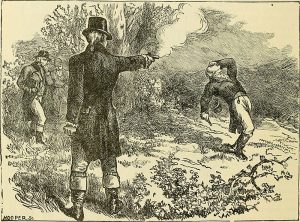 ither. A number of those in the Federalist-controlled House of Representatives insisted on following the Constitution’s flawed rules and refused to elect Jefferson and Burr together on the same ticket. The highly influential Federalist Alexander Hamilton, who mistrusted Jefferson, but hated Burr more, persuaded the House to vote against Burr, whom he called the most unfit man for the office of president. Of course, that cause a hatred between Hamilton and Burr that led Burr to challenge Hamilton to a duel in 1804. Burr won the duel when he killed Hamilton. Two weeks before the scheduled inauguration, Jefferson emerged victorious, and Burr was confirmed as his vice president. It was the first of only two times the presidency has been decided by the House of Representatives.
ither. A number of those in the Federalist-controlled House of Representatives insisted on following the Constitution’s flawed rules and refused to elect Jefferson and Burr together on the same ticket. The highly influential Federalist Alexander Hamilton, who mistrusted Jefferson, but hated Burr more, persuaded the House to vote against Burr, whom he called the most unfit man for the office of president. Of course, that cause a hatred between Hamilton and Burr that led Burr to challenge Hamilton to a duel in 1804. Burr won the duel when he killed Hamilton. Two weeks before the scheduled inauguration, Jefferson emerged victorious, and Burr was confirmed as his vice president. It was the first of only two times the presidency has been decided by the House of Representatives.
 In early American history, a duel…then called an Affair of Honor were a legal way to settle disputes between parties. Most of these duels were settled amicably before the duel ever too place, still, some went the way of the full-blown duel. I can understand why the parties would try to work it out amicably, because you really never knew who was going to win in a duel, and you had to decide if this dispute was worth your life.
In early American history, a duel…then called an Affair of Honor were a legal way to settle disputes between parties. Most of these duels were settled amicably before the duel ever too place, still, some went the way of the full-blown duel. I can understand why the parties would try to work it out amicably, because you really never knew who was going to win in a duel, and you had to decide if this dispute was worth your life.
One of the most famous duels in American history, was between Vice President Aaron Burr and his long-time political antagonist, Alexander Hamilton, who was born on the Caribbean island of Nevis in either 1755 or 1757 (the exact date is under dispute). Hamilton was a poor immigrant, while Burr was born into a wealthy New Jersey family in 1756. Both were highly intelligent and became capable politicians…but had opposing views and were part of different political parties. Hamilton thought Burr was a politically dangerous man, and was quick to point out his views on the matter.
As you can imagine, Hamilton’s statements against Burr did not create a friendship between the two. Burr became vice-president to Thomas Jefferson in 1800, but his political views quickly caused the two men to grow apart politically. Jefferson did not support Burr’s re-nomination to a second term, in 1804. In the campaign, Burr’s character was savagely attacked by Hamilton and others, and after the election Burr vowed to restore his reputation by challenging Hamilton to a duel…an “affair of honor.”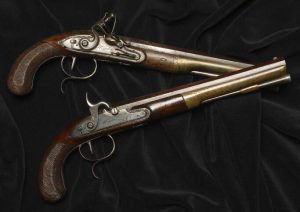
As “affairs of honor” go, most were solved without gunfire, in fact, the outspoken Hamilton had been involved in several affairs of honor in his life, and he had resolved most of them peaceably. That was not to be the case here. The hatred between the two men went too deep, and there was no such willingness to resolve the matter easily. So, on July 11, 1804, the enemies met at 7am at the dueling grounds near Weehawken, New Jersey. Ironically, it was the same spot where Hamilton’s son had died defending his father’s honor in 1801. As these matters go, the events that followed were told in conflicting accounts. According to Hamilton’s “second,” (his assistant and witness in the duel), Hamilton decided the duel was morally wrong and fired into the air. Burr’s “second” claimed that Hamilton fired at Burr and missed. The seconds agreed on the next events. Burr shot Hamilton in the stomach. The bullet lodged next to his spine. He was taken back to New York. He died the next day.
The nation was outraged by the killing of a man as respected as Alexander Hamilton. Burr, who was still vice president at the time, was charged with murder. Nevertheless, he returned to Washington DC, where he finished his term immune from prosecution. In 1805, Burr, thoroughly discredited, concocted a plot with James Wilkinson, commander of the US Army, to seize the Louisiana Territory and establish an independent empire, which Burr would lead. He contacted the British government and unsuccessfully pleaded for assistance in the scheme. Later, when border trouble with Spanish Mexico heated up, Burr and Wilkinson 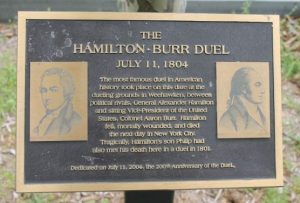 conspired to seize territory in Spanish America for the same purpose.
conspired to seize territory in Spanish America for the same purpose.
In the fall of 1806, Burr led a group of well-armed colonists toward New Orleans, prompting an immediate US investigation. General Wilkinson, in an effort to save himself, turned against Burr and sent dispatches to Washington accusing Burr of treason, or maybe insanity. In February 1807, Burr was arrested in Louisiana for treason and sent to Virginia to be tried in a US court. He was acquitted on a technicality in September. Still, public opinion called him as a traitor, and he fled to Europe. He later returned to private life in New York, the murder charges against him somehow forgotten. He died in 1836.

